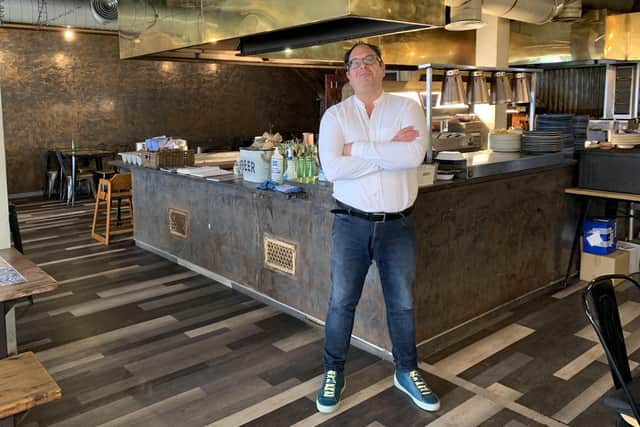Business-rate cuts won’t make ‘financial difference’ says Worthing and Littlehampton restaurateur
and live on Freeview channel 276
Yesterday (Wednesday, October 27), Chancellor Rishi Sunak announced business rates were to be cut in half for the hospitality, retail, and leisure sectors.
In his Budget, Mr Sunak announced the hospitality industry, and the retail and leisure sectors, would see 50 per cent business rate cuts in England in 2022/23, which could be up to £110,000.
Advertisement
Hide AdAdvertisement
Hide AdThere will also be a change to alcohol duty and the National Living Wage is to increase next year to £9.50 an hour.


Andy Sparsis, who owns The Fish Factory restaurants in Littlehampton and Worthing, and The Fat Greek Taverna in Worthing, said he could not see how these changes will make any financial difference.
He said: “When you look at the duty on a pint, it’s about 5p. It sounds like it’s great, like ‘yeah you’ve put beer down’, but that isn’t an decrease when you look at the utility costs, wage rises, everything else going up.
“I’m an advocate for higher prices on wages, I think we should pay more, but the biggest struggle is offsetting that through other taxes.
Advertisement
Hide AdAdvertisement
Hide Ad“So, if you imagine our VAT at 20 per cent and with the minimum wage of £9.50, when you do the calculations, the pay as you earn and the holiday pay is another 68p, so it will be well over £10 that people will pay in minimum wage.”
Andy said the immediate impact on his restaurants would be prices having to go up. He added: “Prices increasing is mostly driven by the lack of any commitment of the VAT, it means we cannot afford to keep the prices as they are.
“We are still recovering from the pandemic. Businesses aren’t open as often as they were, and still, they can’t get enough staff to operate fully, so none of the original problems that we had have been dealt with.
“The government has tinkered with the problem, but it doesn’t go anywhere near to solving it, and we are ignoring the elephant in the room which is the VAT, which is the only variable that can help businesses.
Advertisement
Hide AdAdvertisement
Hide Ad“I think the hospitality industry welcomes any cuts and any measures that help. I think the positive side is that the government are looking at the industry and they are trying to make reductions, but I have to be negative in a sense because they don’t go far enough to make any financial difference, so we aren’t actually going to save any money from these cuts until they change the VAT.”
Responding to business rates reforms, John O’Connell, chief executive of the TaxPayers’ Alliance, said: “These reforms are a big win as rates are one of the most damaging taxes for small firms, especially those on our high streets.
“Revaluations every three years instead of five, as the TPA recommended to the Treasury, will ensure that rates better reflect economic reality.
“It’s vital that the government continues to work on how it can help the high street with lower taxes.”
However, Andy believes that if the VAT does increase to 20 per cent, we can all ‘kiss goodbye to the high street’.